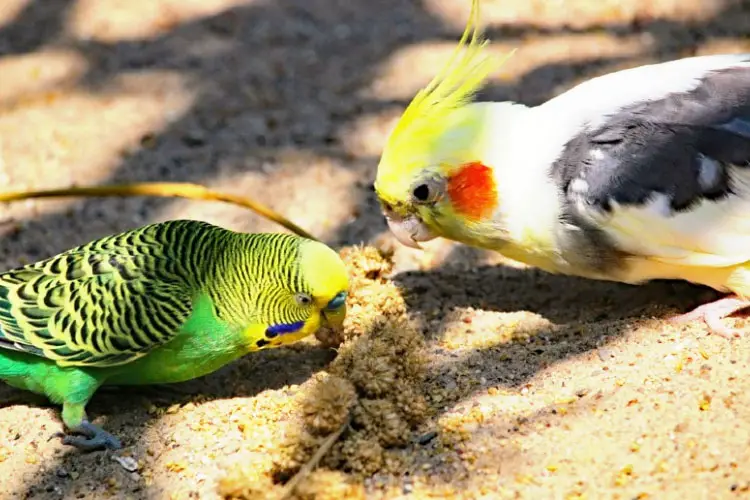If you have caught your cockatiel and budgie mating, you may have become curious as to whether they can produce offspring. Is cockatiel x budgie hybridization possible?
Budgies and cockatiels belong to completely different genus classes and cannot produce offspring. Though they may exhibit mating behavior when housed together, they’ll not produce a hybrid since they’re genetically incompatible.
Find out more about budgies and cockatiels mating below, whether hybridization is possible between your budgie and a ‘tiel, and other hybridization options to consider.
Can budgies and cockatiel mate and produce offspring?
Budgies and cockatiels cannot produce offspring because they belong to different genus classes—budgies are genus Melopsitticus Gould, while cockatiels are genus Nymphicus Wagler.
Birds of different genera are simply genetically incompatible and unable to produce a young one.
For a budgie and a cockatiel to produce a hybrid chick, they must be closely related and have the same (or nearly the same) chromosomes count.
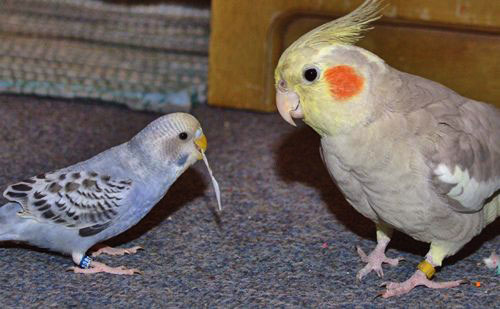
A difference of just two chromosomes is usually the most for successful hybridization.
But even then, this little difference can harm the produced offspring in that it will be unhealthy and have a defective mixture of traits that end up weakening it.
Even if a miracle happens and a cockatiel and budgie hybridization becomes successful and the hen lays fertilized eggs, the resulting offspring will most probably be a mule—meaning it can’t reproduce.
Hybrids also tend to die young, and in case they grow up to adulthood, they usually have problems attracting mates.
You should also factor in the physical differences that exist between these two bird species. Specifically, the size can make it impossible for the two to crossbreed.
Cockatiels usually measure 12 to 14 inches in length and are generally bigger than budgies which can measure 5 to 11 inches. There would be problems with egg laying due to this size difference unless the female is a cockatiel.
Why do the birds display mating behavior then?
If you house a cockatiel and a budgie in the same cage, and they’re of the opposite sex, they’ll try mating as they also have sexual urges. But this doesn’t guarantee they’ll mate.
Pet birds are known to bond and show courtship behavior not just to each other but also to the humans they get bonded to (Source).
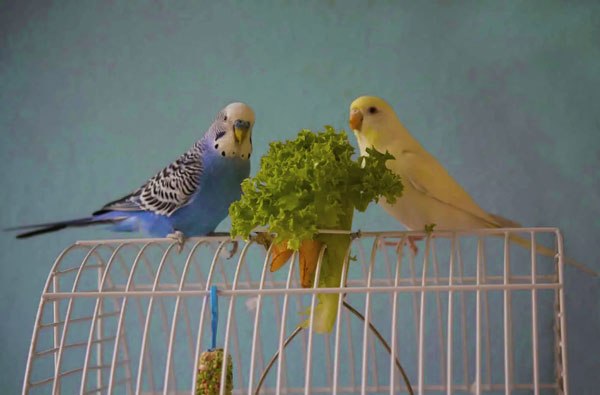
Others will mate with their toys, home pets like cats, and any other thing that comes their way, but they’ll only lay unfertilized eggs.
Or if you have a budgie and a cockatiel in the same cage and the female is triggered to lays eggs, you can still rest assured that no hybridization will occur because these eggs are infertile.
Beware of your bird turning into a chronic egg layer!
You should be careful about your female pet bird turning into a chronic egg layer as it tries mating with the male budgie or cockatiel and other objects in her cage.
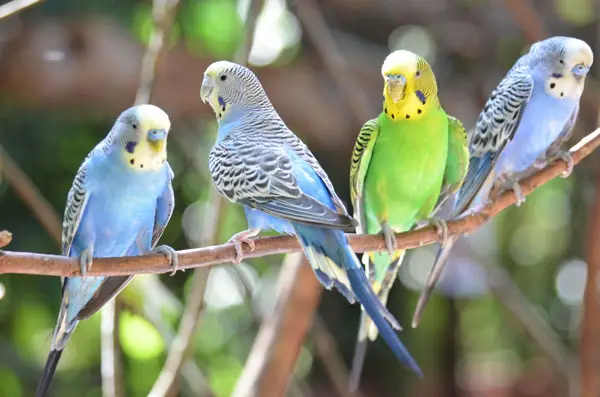
This can have serious effects on its overall well-being. Make sure it gets plenty of calcium on top of a well-balanced diet and doesn’t end up being egg-bound.
What other Hybridization options are available?
For bird owners who are still interested in the hybridization of various birds, there are some options for you to consider, whether it involves cockatiels or budgies.
However, you’ll still need to keep this hybridization rule in mind: for the two birds to mate successfully, they must belong to the same genus class.
For instance, you can breed a variety of parakeet species to produce a viable hybrid that exhibits the behavioral characteristics and appearance of the two parents.
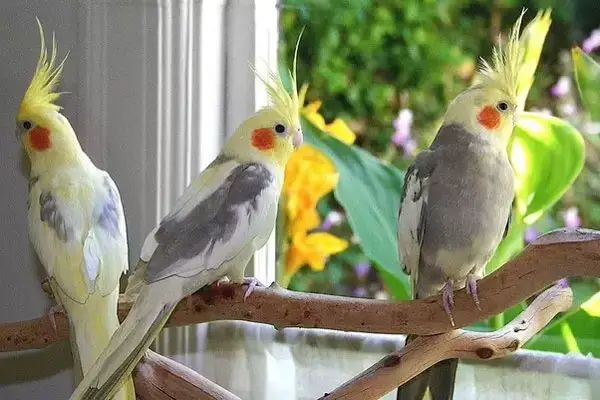
The same case goes for the many species of cockatoos. You can breed a variety of them including the, etc., and get viable hybrids that feature an odd mix of their parent’s behaviors and colors.
Unfortunately for budgies, they’re the only species in the genus Melopsittacus undulates—meaning they can only mate with their own kind and no other bird species.
Other birds in the parrot family with the same genus can be easily crossbred. A good example is the hybrid macaws—they aren’t pure macaw species but are a result of two different macaw species mating.
The breeds can be between two species of the same genus or two subspecies of the same species.
Final Verdict
Cockatiels and budgies are not closely related and belong to different genus classes. This makes them genetically incompatible and impossible for them to reproduce. Even if you catch them mating, the eggs the hen produces will be infertile and won’t bear offspring.
If you’re still fascinated with hybridization, you can try crossbreeding cockatiels with other species in the same genus class or budgies with other birds in its genus class. And the resulting hybrids will feature a mix of the parent’s behavior and colorations.
